Network Culture: Politics for the Information Age by Tiziana Terranova (from Pluto Press, hence the English spellings below) is one of the most challenging books I’ve read in the past couple of years. Terranova ranges across some very dense theory and puts it together with fresh thinking about our rapidly mutating world. I cannot say I really grasped, in the deepest sense, all of her arguments. Her discussion of information theory (going back over ideas and texts from Bell Labs in the 1940s and 1950s) and her look at cellular automata and biological computing in a later chapter both left me with brain cramps, straining to wrap my head around her presentation and arguments. But some things seeped in, and when they did, I felt weirdly invigorated, a small thrill of understanding and new insight” and let’s face it, that is not a feeling one gets from most reading, especially about something called “˜network culture.’
“”¦ the more information, the less meaning. In this sense, the proliferation of information spells the drowning of meaningful experience in a sea of random noise”¦. An informational culture marks the point where meaningful experiences are under siege, continuously undermined by a proliferation of signs that have no reference, only statistical patterns of frequency, redundancy and resonance (the obsessive frequency and redundancy of an advertising campaign, the mutually reinforcing resonance of self-help manuals and expert advice, the incessant bombardment of signifying influences.) Holding on to the “˜message’ in order to drown the noise of contrasting information is what allows the stability necessary in order to establish a contact. But in this case, what stops information from being just another name for brainwashing? . . . Information theory, thus, highlights the minimum conditions for communication, and thus attributes a secondary importance to the question of the meaning of messages when compared to the basic problem of how to increase the effectiveness of the channel.“
The book is only 156 pages long and well footnoted, but it read like a 500-page book given the well-crafted compactness of her analysis. After a rather long-ish treatment of signal-to-noise and communication politics, she ends a section with this really smart reconfiguration, which should give pause to all my radical media activist colleagues: “The cultural politics of information is no radical alternative that springs out of a negativity to confront a monolithic social technology of power. It is rather a positive feedback effect of informational cultures as such.”
This kind of thinking is what felt so refreshing to me. To a great extent I labor in relative isolation, trying to get my assumptions about memory, history, knowledge, politics, etc. out of the usual loops and ruts. I don’t succeed nearly as often as I’d like. But once in a while, something like this book comes along and it’s like discovering an oasis where you can drink deeply and see the world with new eyes.
I’ve been working on a series of interviews with people who are engaged in projects, often work-like, but where they are taking their time and their technological know-how OUT of the market and sharing it freely, doing things that I argue are laying the social and technological foundation of a post-capitalist world. Examples include participants in the “underground” bicycle culture, community gardeners, free software makers, biodiesel activists, and more. I wrote an article in the last Processed World about the way the Burning Man festival exemplifies this drive to free cooperation and artistic/technological expression (that piece will eventually be a chapter in this new book). Anyway, Terranova has a chapter called “Free Labour” which I found truly brilliant. She discusses Richard Barbrook’s much-traveled 1998 essay on the High-Tech Gift Economy in which he ultimately argues that capitalism’s main strategy for co-opting the free software movement is commodification. A great number of essays have followed Barbrook in the ensuing seven years, and the movement towards free software is far from dead. Terranova, though, wants us to think more carefully about the use and meaning of this type of “free” experience.
“”¦ In the overdeveloped countries, the end of the factory has spelled out the marginalisation of the old working class, but it has also produced generations of workers who have been repeatedly addressed as active consumers of meaningful commodities. Free labour is the moment where this knowledgeable consumption of culture is translated into excess productive activities that are pleasurably embraced and at the same time often shamelessly exploited . . . These types of cultural and technical labour (web design, multimedia production, digital services, chat, real-life stories, mailing lists, amateur newsletters [like this one?!?” cc] are not produced by capitalism in any direct, cause-and-effect fashion, that is they have not developed simply as an answer to the economic needs of capitalism. However, they have developed in relation to the expansion of the cultural industries and they are part of a process of economic experimentation with the creation of monetary value out of knowledge/culture/affect . . . Capital wants to retain control over the unfolding of these virtualities and the processes of valorization. The relative abundance of cultural/technical/affective production on the Net, then, does not exist as a free-floating postindustrial utopia but in full, mutually constituting interaction with late capitalism.”
Writing about this on my blog is certainly ironic, because one of Terranova’s key points in her discussion of free labor is how the Internet in particular depends on it, and that the digital economy is not separate from the rest of capitalist production, but rather a model of where it is headed.
“In particular, the Internet foregrounds the extraction of value out of continuous, updateable work and is extremely labour-intensive . . . The sustainability of the Internet as a medium depends on massive amounts of labour (which is not equivalent to employment, as we have said), only some of which was hyper-compensated by the capricious logic of venture capitalism. Of the incredible amount of labour which sustains the Internet as a whole (from mailing list traffic to web sites to infrastructural questions), we can guess that a substantial amount of it is still “˜free labour.’ . . . The “˜open-source’ movement, which relies on the free labour of Internet tinkers, is further evidence of this structural trend within the digital economy . . . Rather than representing a moment of incorporation of a previously authentic moment, the open-source question demonstrates the overreliance of the digital economy as such on free labour, free both in the sense of “˜not financially rewarded’ and of “˜willingly given.’ . . . Free labour is a desire of labour immanent to late capitalism, and late capitalism is the field which both sustains free labour and exhausts it. It exhausts it by undermining the means through which that labour can sustain itself: from the burn-out syndromes of Internet start-ups to under-compensation and exploitation in the cultural economy at large.”
Sounds pretty damn familiar, doesn’t it? In my talks with various subjects involved in the activities I listed above, most of them lack a strong political sense of what they’re doing. In fact, while it seems that most of them are engaged in prefigurative behaviors that might set the stage for a post-capitalist society, or at least one that is post-petroleum, like the overarching naivete of ecological activists generally, few people have a critique of the market per se. I think people have an impulse toward free cooperation, meaningful engagement, creativity, sharing, etc., but unless they are clear that the logic of the market will destroy those impulses, they are always susceptible to recuperation, to having their earnest and often brilliant activities reduced to the banality of a small business, a wage-labor gig, a series of products for sale”¦ I really like Terranova’s clarity on this question, her ability to puncture some of the romance surrounding the Net and open-source ideology. And then here I am writing for my blog, freely sharing my ideas, and glad to do it, because as she mentioned above, it’s “˜willingly given.’ Of course I have had many opportunities, with still more ahead, to feel burned out, under-appreciated, under-rewarded. That’s the narrow view from here. But Terranova’s analysis makes clear that it’s the aggregate labor, of which I am an infinitesmal part, that the bleeding edge of capitalism is increasingly dependent on, and increasingly successful at channeling its “˜valorization’ (when and if there is any!).
In her last chapter, “Communication Biopower,” she references Habermas’s essay “The Structural Transformation of the Public Sphere.” Again, it’s a bit dense to follow every part of her argument, but her discussion about the public sphere, democracy, and mass culture is really helpful. Here’s a few final quotes from her book:
“It has become impossible to ignore the way in which much communication is not simply about access to information and public debate, but is also about manipulation by way of positive (spin, propaganda, hegemony) and negative tactics (censorship, exclusion, distortion, etc.). The impossible task of the public sphere thus becomes that of returning communication to an older, purer function by combating the corrupting influence of manipulation, censorship, propaganda and spin. However this activity would be pointless if this public sphere did not aim to represent and address an inherently interested and enlightened public to whose opinion governments are bound. If such reasonable public opinion was shown not to exist or to be ineffectual in influencing the actions of politicians, then the organs of public opinion would lose much of their power . . . The corruption of communication that many see at the heart of the corruption of democratic life is thus blamed on the illegitimate interference of private interests in the public sphere. But if this is the case, and considering the entrenched interests that rule the media industry with ferocious determination and expansionist aims, and the passivity of the masses, can communication be saved at all? And if not, how do we switch it off?
“If one really thought it through, a public sphere understood as the space of free formation of public opinion, would be incompatible with mass democracy. Wherever there is a mass, there is the preponderance of an economy of spectacles, hyperconformity and excess.”
And then, after a long discussion of the problem of oversimplifying the media universe, she concludes, “We are not living, that is, in a pure mass culture, but in a configuration of communication where a pure mass perception clashes and interacts with a fractured and microsegmented informational milieu.”
And then loop back to a previous chapter on “Soft Control” (biological computing) that I did not discuss much. She takes on the notion of emergent intelligence and self-controlling systems, adds to that the Hardt/Negri idea about “multitudes,” and then argues:
“Like the smooth milieus of biological computation, the multitude too is a necessarily vague term that is defined mainly the fluidity of movement and by the formations that such fluidity leaves behind as a kind of after-effect. As such, it does not deny the existence of the stratifications of identity and class, but it opens up another dimension where such positions are caught in terms of other types of capacity. If this is the case, then biological computation (in its widest possible sense) is an attempt to “˜hack the multitude'” to hack the social at its most fluid and least stratified, wherever it escapes the constrictions of rigid forms of organization but also of identity and class. As such and beyond some of its most simplistic applications, the Cellular Automata model has much to offer to any attempt to think about processes of bottom-up organization and emergence in network culture, their relationship to the reorganization of capitalist modes of production and the political potentials that such reorganization opens up. Hacking the multitude is still an open game.”
Finally, that’s why I like this book. It processes some very dense theory and introduced me to a bunch of advanced developments that I knew little about, and had a hard time really understanding. But when it is all said and done, she is not falling into the old ultra-left trap of telling the reader that all is lost, that we’re living in a world of predictable dead-ends and hopelessness. There is still an open game out there, and whether we are aware of it or not, we’re playing it. This book is highly recommended!



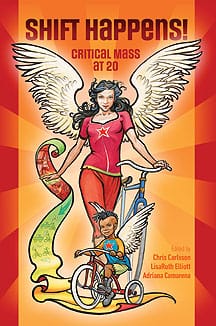
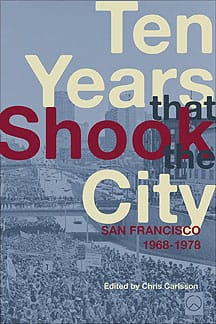
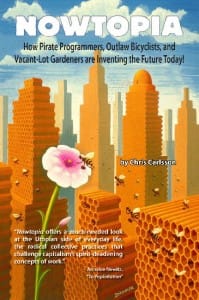
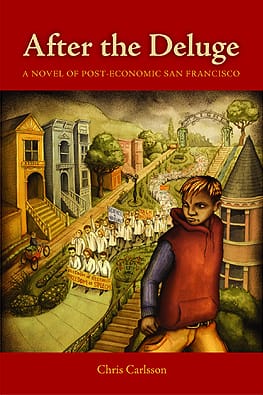
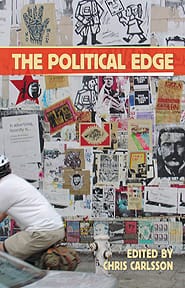
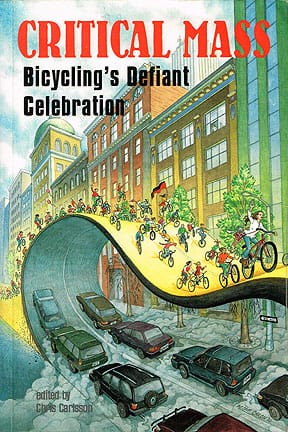
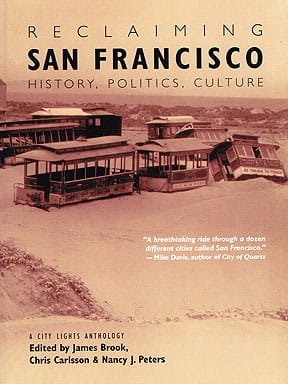
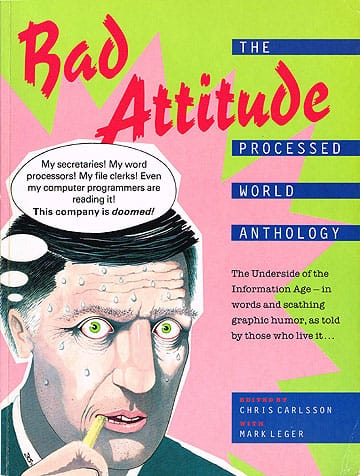

Leave a Reply